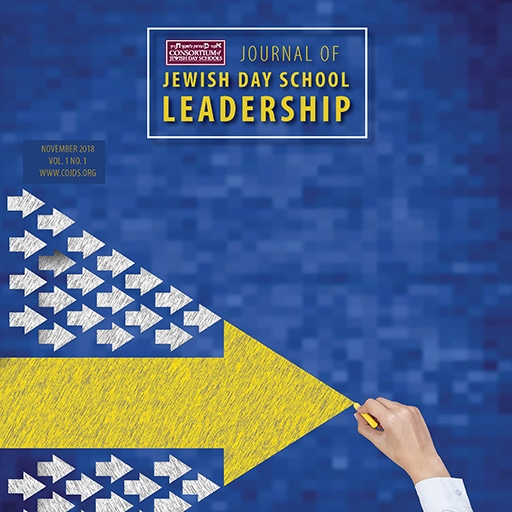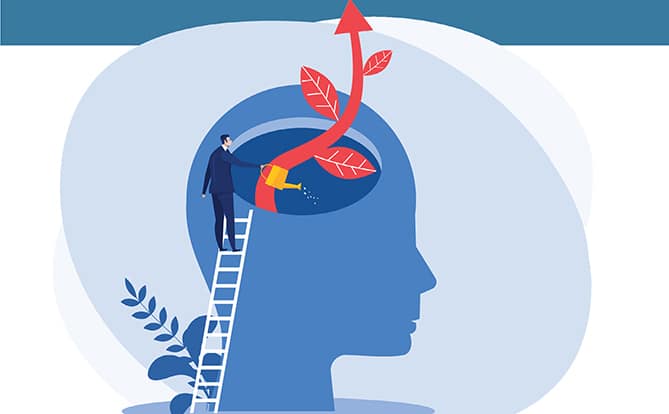
Seeking Submissions
January 3, 2022
CoJDS’ Curriculum Development–A Closer Look
January 17, 2022Rav Ahron Lopiansky
This essay was prepared for the Journal of Jewish Day School Leadership based on a presentation to rebbeim that was part of a CoJDS training program in January 2021.
I have spent the last 25 years out of town involved in chinuch, and they’ve been wonderful years with lots of sipuk. The boys I deal with tend to be older high school or bais medrash aged, so I don’t have much practical advice to share with mechanchim of other populations. Instead I would like to address the mindset of a mechanech.
We’ve all grown up in yeshivas and have yeshiva values, and we must make sure there is no dissonance between the perspective we’re coming in with and what we’re experiencing every day as mechanchim. In yeshiva, we’re talmidim of rebbeim who give very high level shiurim, and we strive to emulate them, which demands that we spend years learning at a high level with a focus and drive. Anything that distracts us from this kind of sustained and rigorous learning is viewed as ביטול תורה and we try hard to avoid it.
Then comes an opportunity to become involved in chinuch. Instead of learning קדשים or נזיקין, we now have an opportunity to teach 5th grade, where we will teach פרק המפקיד (perhaps,) again and again, for years, and that’s how we’ll be spending our time. We see this is as somewhat of a contradiction to what we’ve been doing until that point. It might have been פרנסה needs that pushed us out of the bais medrash, so we have an “excuse,” or perhaps we even feel a motivation of חסד – to bring Torah to תלמידים who wouldn’t have it without us, (“who am I to luxuriate on a R’ Shimon when I could be teaching them aleph bais,”) so we can justify the ביטול תורה, but it’s still a סתירה in our minds. These kinds of attitudes may be technically correct but they’re very dissatisfying, and the feeling lingers that if only we had more years to sit in Kollel we could have become greater. These are the types of ideas that challenge us when we go into chinuch.
Teaching Brings Life to our Learning
How can we understand the role of teaching Torah in the context of our personal Torah learning? Let’s start with something we say every day in ברכות קריאת שמע:
אָבִינוּ הָאָב הָרַחֲמָן הַמְרַחֵם רַחֵם עָלֵינוּ וְתֵן בְּלִבֵּנוּ לְהָבִין וּלְהַשכִּיל לִשְׁמעַ לִלְמד וּלְלַמֵּד לִשְׁמר וְלַעֲשות וּלְקַיֵּם אֶת כָּל דִּבְרֵי תַלְמוּד תּורָתֶךָ בְּאַהֲבָה.
This ברכה is halachically like ברכות התורה, and in it we ask for many things which are fundamental to Torah: לְהָבִין וּלְהַשכִּיל, to understand the Torah, as well as לִשְׁמר וְלַעֲשות וּלְקַיֵּם – to merit to fulfill it. But what is לְלַמֵּד doing there? It’s a wonderful thing to teach Torah, but this is a ברכה about our personal Torah learning, so where does teaching come in? Also, it seems that teaching is phrased with, and attached to, learning. In what way is ללמד attached to לִלְמוד?
The ר”י בר יקר says that the language of this ברכה is from Chazal, based on a Midrash in Vayikra. The Midrash says that someone who learned Torah but didn’t teach it, “אין לך הבל גדול מזה” – there is no greater futility that this.
Why? What about all the learning? How does it all become הבל if he doesn’t teach? This demands explanation.
Let’s take a moment to look at the מצוות that a person has and order them fundamentally. If we were to create a hierarchy, we would probably start with some general and basic mitzvas, such as the ז’ מצוות בני נח, and keep on going to the many obligations that a person has, until we got to perhaps the ultimate mitzva, which is פרו ורבו. As a משל, in the study of biology, you would list all the different systems in the body which exist to sustain and support it, while the reproductive system is distinct. It exists to create a copy of the person – to extend him beyond his body. You wouldn’t say that the reproductive system is the cornerstone; rather it’s the crown on top of everything else. Not only can this person survive and perfect himself, but he can even create another person! Likewise, פרו ורבו seems to be the מצוה that would come after everything else.
However, פרו ורבו is the first mitzva in the Torah. (The other מצוות בני נח are largely just hinted at.) This mitzva of פרו ורבו seems to be the most fundamental mitzvah. Why is it like that? Shouldn’t Hashem have told us first to take care of ourselves and then to have children?
We find something else interesting when it comes to this mitzva. רחל saidהבה לי בנים ואם אין מתה אנכי – that if she couldn’t have children, she would consider herself dead. What’s the meaning behind this statement? In what way is a person who does not have children considered to be dead? We can understand the other times that Chazal tell us a living person is considered dead, like someone who is impoverished – he doesn’t have the food or shelter he needs for survival, and similarly, someone who is blind and needs others to guide and care for him… but if a person has everything he needs and is just missing something outside of himself – he doesn’t have children – why is he a meis? Isn’t he just missing an extra, a luxury?
There is an idea that is taught by the Maharal at the end of Avos. The Mishna discusses that Torah guards you when you leave this world, expressed in the pasuk of והקיצות היא תשיחך – that the Torah you’ve learned in your life becomes your words in עולם הבא. The Maharal explains that the words of Torah are a person’s חיות. When we observe a living person, doing whatever he is doing, apparently accomplishing, we are seeing him merely בכח – his potential. We tend to imagine that a fetus before birth is potential and a fully grown person is its realization, but the Maharal says that’s not so. The thoughts and ideas that a person forms are his בכח, and the בפועל – the actualization of that person – is his speech, the כח הדיבור.
Therefore, the דברי תורה that a person expresses are really his חיות. If he sits and learns and has wonderful ideas, he’s as fulfilled as a fetus, just a wonderful בכח. When he’s able to bring those ideas out as words then he truly exists and is able to bring himself בפועל. The Maharal says in several places that אדם is the gematria of מה, what, because a man is merely potential, a fetus, a seed. When he realizes himself through דיבור that’s what makes him alive. People who die are called יורדי דומה, from the word דומם, because they are no longer capable of expressing; they are still and silent.
The implications are significant. So long as a person has not yet expressed himself, to an extent he doesn’t yet exist. There’s a lot of potential, but until he uses his רוח ממללא – the power of speech – (the תרגום of נשמת חיים,) he is just a fetus. The stage of absorbing and learning is the stage of potential. The stage of expression is when he realizes himself.
Rav Moshe Shapiro used to say over from the Maharal that the reason why we say thatשומע כעונה is that without a listener there is no מדבר – no speaker. Speech is not merely exercising your vocal chords but implies that you’re expressing yourself to someone. As long as there is no one around to hear you, you have not spoken. Since the שומע makes the מדבר into a מדבר, it’s only right that he’s considered part of that דיבור.
Since man is created in a way that expression will be his self-realization, פרו ורבו is the most fundamental act that he can do. What greater expression of self is there than to take his מציאות and bring another “self” into the world? We find this idea, as well, in the Torah’s description of trees: עץ פרי עשה פרי למינו אשר זרעו בו על הארץ – a tree that creates fruit just like it, with its seeds inside them. The essence of the tree is to produce trees that are just like it.
This is true physically but is true in רוחניות as well. ספר קהלת labels the world as הבל – futility. The point that keeps coming up again and again in קהלת is מה יתרון לאדם – what benefit is there for Man? If whatever he does will fade and come to an end, then all is futile. It might look okay but it will dissipate into nothing, like a cloud that looks like something until it’s gone without a trace. What can we do in this world that will last and is not הבל?
“ושננתם לבניך” אלו התלמידים – when you teach Torah to your students, it’s like you bore them. Teaching others Torah is like פרו ורבו for Torah. Just like בנים are the ultimate expression of self, תלמידים are the ultimate expression of your Torah. No matter what level you teach, there is a sense of עשה פרי למינו אשר זרעו בו – that your Torah been realized and become something new.
We find that when people turned down opportunities to be מרביץ תורה they undergo afterward a certain drying up, a loss of חיות, since they don’t have a vehicle for bringing their Torah to fruition and making it a דבר של ממש. However, when you give over your Torah ideas to others, they take on new life. And if you’re fortunate and you give over to others the desire to be מרביץ, it keeps going. Now we can sense that the Torah ideas that started in your head have become something real.
Teaching with Passion
Let’s move to the teaching process itself. Hashem told Moshe and Aharonוְאָנֹכִי אֶהְיֶה עִם פִּיךָ וְהוֹרֵיתִיךָ אֲשֶׁר תְּדַבֵּר – I will teach you what you should say. The word וְהוֹרֵיתִיךָ and it’s grammatical construction are strange, and the midrash offers two explanations. The first is that the meaning is similar to הריון – the word for when a woman becomes pregnant and gives birth. The second explanations is that the word is like יורה חץ, which describes shooting an arrow. We also find the phrase יורה כחץ used to describe the halachic criteria for fertility. Let’s explore this further, because it seems like there are two facets of the same idea here.
When you listen to someone speak, you can discern if the words come from his mouth or if there is a power in his heart that’s shooting them out. They say that the Chazon Ish wasn’t much of an orator, and once when called upon to speak on behalf of the mitzva of Shmitta, about which he was very passionate, he demurred and just said כל עצמותי תאמרנה – that his strong feelings for the cause shot out of his very being.
Back when I was working in Aish HaTorah, we used to learn with people and develop relationships, and then, at some point, there was invariably a very intense conversation when the person would question his path in life. These conversations were very rewarding, but also very intellectually and emotionally draining – they took a lot out of you. I remember one afternoon I was tired and was waiting for 6:00 to arrive so I could go home, when someone came over to me; I could tell it was going to be this kind of conversation. In my mind, I started running through the conversation – he would say this and I would say that, etc. Then I stopped myself. I realized that if I couldn’t get up for this kind of conversation, it’s time to move on.
If you can’t bring all of your being, your essence, you’re not being effective. When we’re talking about teaching in the context of self-realization, the words that come from your heart shoot out like an arrow. In order for a person to be מוליד, if it comes from any place other than his מציאות, it doesn’t work. For the הריון of אלו התלמידים to be effective, it must be יורה כחץ.
We can now understand how ללמד וללמד is the actualization of one’s Torah. It’s theוהקיצות היא תשיחך coming בפועל. When you teach something, you feel a כח החיות, as if you’re realizing yourself. When you feel that you’ve explained something to a תלמיד and you feel so alive it’s because you’ve never realized these דברי תורה this way. When it’s יורה כחץ, from your essence, then it accomplishes something in the talmid; he becomes a new creation – a בריה חדשה. It’s a profound transfer of your חיות to the תלמיד, an עץ פרי עשה פרי למינו.
Rabbi Ahron Lopiansky is the Rosh Yeshiva of the Yeshiva of Greater Washington. He is the author of numerous scholarly works in Hebrew and English. Rabbi Lopiansky has a unique teaching ability that lures one into the depths of Chazal, pulling out profound messages as well as inspirational and practical lesson for life. His depth of understanding and broad application of the sugyos provides new clarity and insight into the many facets of Torah.

